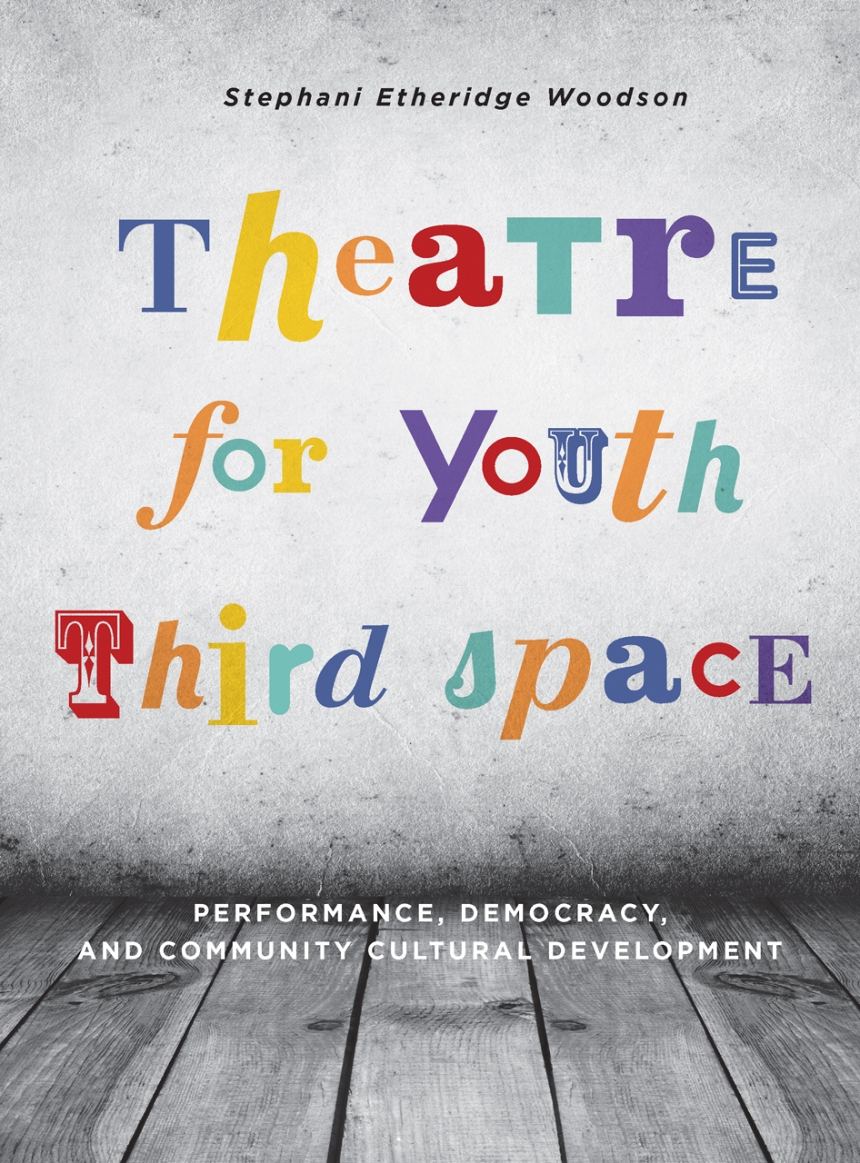Theatre for Youth Third Space
Performance, Democracy, and Community Cultural Development
9781783205318
Distributed for Intellect Ltd
Theatre for Youth Third Space
Performance, Democracy, and Community Cultural Development
Theatre for Youth Third Space is a practical yet philosophically grounded handbook for people working in theater and performance with children and youth in community or educational settings. Presenting asset development approaches, deliberative dialogue techniques, and frames for building strong community relationships, Stephani Etheridge Woodson shares multiple project models that are firmly grounded in the latest community cultural development practices. Guiding readers step by step through project planning, creating safe environments, and using evaluation protocols, Theatre for Youth Third Space will be an invaluable resource for both teaching and practice.
Table of Contents
Acknowledgments
Foreword—Michael Rohd
Introduction
Section 1: Field Building—or—the Twenty Principles of TFY Third Spaces
1.1 TFY Third Space
1.2 Public Art and Communities of Belonging and Location
1.3 Children and Youth
1.4 Further Defining “Public”
1.5 Placemaking as a Function of Public-Making
1.6 Community Cultural Development
1.7 Deliberative Democracy and the Politics of Representation
1.8 Defining Community
1.9 A Pause to Build Field Theory in CCD with Children and Youth
1.10 A Brief Introduction to Capital and Cultural Economies
1.11 Expanding Capital Systems
1.12 Defining Development
Section 2: Ethics, Leadership, and Facilitation
Introduction
2.1 Starting From Where You Are: Ethics and Pluralism
2.2 Culture, Values, and Beliefs
2.3 Diversity and Difference
2.4 Power and Status
2.5 Hegemony
2.6 Putting Ethics and Pluralism Together
2.7 Authentic Leadership
2.8 Healthy Ensembles
2.9 Fostering Creativity
2.10 Theatre and Performance Skills
2.11 Facilitating Creative Processes and Products
Section 3: Partnering, Project Management, Planning, and Evaluation Thinking through Community
3.1 Partnering to Foster Change and Social Transformation
3.2 Barriers to Working Together
3.3 Qualities Helpful to Overcoming Barriers
3.4 Conceptualizing Projects
3.5 Project Frames
3.6 Articulation a Theory of Social Change
3.7 Projecting Planning, Proposals, and Management
3.8 Documentation, Evaluation, and Assessment
3.9 Final Project/Partnership/Program Reports
Works Cited
Foreword—Michael Rohd
Introduction
Section 1: Field Building—or—the Twenty Principles of TFY Third Spaces
1.1 TFY Third Space
1.2 Public Art and Communities of Belonging and Location
1.3 Children and Youth
1.4 Further Defining “Public”
1.5 Placemaking as a Function of Public-Making
1.6 Community Cultural Development
1.7 Deliberative Democracy and the Politics of Representation
1.8 Defining Community
1.9 A Pause to Build Field Theory in CCD with Children and Youth
1.10 A Brief Introduction to Capital and Cultural Economies
1.11 Expanding Capital Systems
1.12 Defining Development
Section 2: Ethics, Leadership, and Facilitation
Introduction
2.1 Starting From Where You Are: Ethics and Pluralism
2.2 Culture, Values, and Beliefs
2.3 Diversity and Difference
2.4 Power and Status
2.5 Hegemony
2.6 Putting Ethics and Pluralism Together
2.7 Authentic Leadership
2.8 Healthy Ensembles
2.9 Fostering Creativity
2.10 Theatre and Performance Skills
2.11 Facilitating Creative Processes and Products
Section 3: Partnering, Project Management, Planning, and Evaluation Thinking through Community
3.1 Partnering to Foster Change and Social Transformation
3.2 Barriers to Working Together
3.3 Qualities Helpful to Overcoming Barriers
3.4 Conceptualizing Projects
3.5 Project Frames
3.6 Articulation a Theory of Social Change
3.7 Projecting Planning, Proposals, and Management
3.8 Documentation, Evaluation, and Assessment
3.9 Final Project/Partnership/Program Reports
Works Cited

